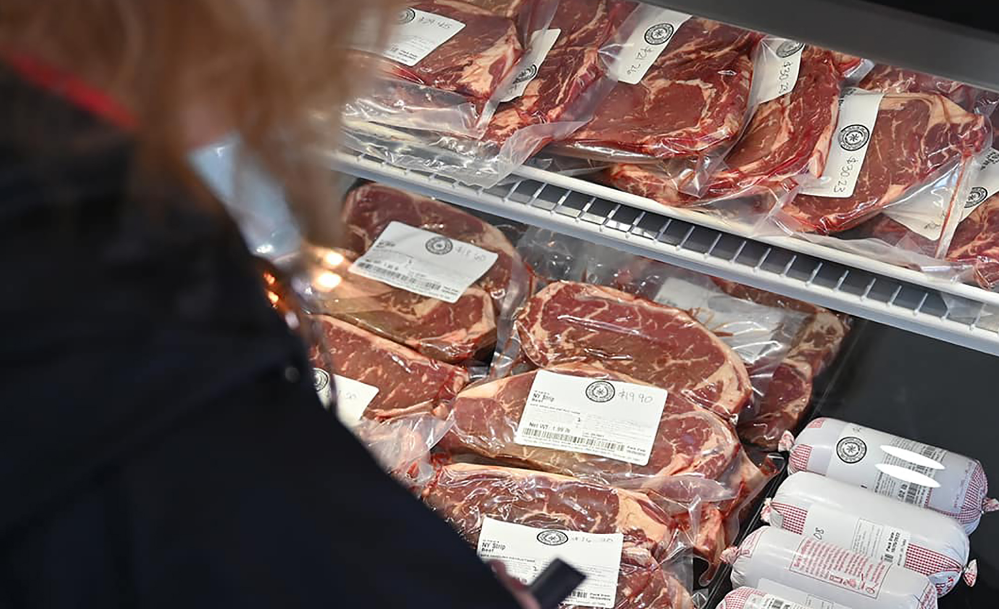
- Details
- By Chuck Hoskin Jr
Guest Opinion. For the Cherokee people and for people everywhere, true freedom is impossible without control over our own food supply. Tribal nations have long suffered the ill effects of being pushed out of our lands, denied our well-developed traditional strategies for food production, and forced to rely on outside sources for the food we consume.
Food insecurity stemming from historical trauma has lowered the health and life expectancy of many Native Americans. Unfortunately, one in six Oklahomans struggle with hunger, and one in four are food insecure, which means they lack consistent access to enough food for an active, healthy lifestyle. Those numbers are even higher among Native households.
As the Cherokee people navigated through the pandemic, our food systems were tested even more. During the crisis, we saw more clearly how our food supply was vulnerable to disruption. The pandemic made clearer what many local ranchers, farmers and others in the agriculture industry already knew – that there is a great need in our region to expand capacity for local, sustainable meat processing.
The meat processing industry, across the United States, is largely controlled by a handful of corporate processors. This is bad for farmers and ranchers as well as consumers. It also means that our tribe’s economy sees millions of dollars annually flow outside of our reservation instead of circulating within it. All of this impacts the Cherokee people and our friends and neighbors in a negative way.
All of this is why we have launched the 1839 Cherokee Meat Co. This newly opened 12,000 square foot meat processing facility in Tahlequah is a huge stride towards food sovereignty for the Cherokee Nation. The facility, which is operated by the tribe’s business arm, is already providing meat processing for local producers and providing our communities with safe, high-quality meat. They offer a variety of meats, including beef and pork, with buffalo and wild game processing of deer and elk available in the future.

The facility will continue growing and will eventually establish a farm-to-table operation with Cherokee Nation’s bison herd to supplement our traditional food distribution program for elders and families in need.
The 1839 Cherokee Meat Co. is our boldest effort yet to reclaim our food sovereignty and strengthen our economy by keeping more of the dollars that we spend on food within the great Cherokee Nation reservation. Ranchers, farmers and others in the agriculture industry work extremely hard to keep our families fed and our economy moving. It is in the national interest of the Cherokee Nation that they have fair access to the marketplace. By directly addressing the meat processing shortage with our own facility, we support locally sourced food for the benefit of Cherokee citizens and the region’s economy.
A responsible government puts a high priority on making food easier to produce, process, and distribute for all citizens. That’s why the Cherokee Nation government, including Deputy Chief Bryan Warner and I, our cabinet, the Council of the Cherokee Nation and tribal government staff, work every day to make sure Cherokee families can get enough healthy food. We have listened to the concerns and requests of our citizens.
To learn more about the 1839 Cherokee Meat Co. and inquire about processing services, visit www.1839cherokeemeatco.com.
Chuck Hoskin, Jr. is the principal chief of the Cherokee Nation.
More Stories Like This
Humanity Is Our Greatest Common DenominatorKen Burns Finally Puts Native People Back In the American Revolution Story — And It Matters
Foul Farming: We Owe Birds Better Treatment
Honoring Our Cherokee Veterans Through Service and Connection
Evidence, Not Emotion Protects Tribal Sovereignty
Help us tell the stories that could save Native languages and food traditions
At a critical moment for Indian Country, Native News Online is embarking on our most ambitious reporting project yet: "Cultivating Culture," a three-year investigation into two forces shaping Native community survival—food sovereignty and language revitalization.
The devastating impact of COVID-19 accelerated the loss of Native elders and with them, irreplaceable cultural knowledge. Yet across tribal communities, innovative leaders are fighting back, reclaiming traditional food systems and breathing new life into Native languages. These aren't just cultural preservation efforts—they're powerful pathways to community health, healing, and resilience.
Our dedicated reporting team will spend three years documenting these stories through on-the-ground reporting in 18 tribal communities, producing over 200 in-depth stories, 18 podcast episodes, and multimedia content that amplifies Indigenous voices. We'll show policymakers, funders, and allies how cultural restoration directly impacts physical and mental wellness while celebrating successful models of sovereignty and self-determination.
This isn't corporate media parachuting into Indian Country for a quick story. This is sustained, relationship-based journalism by Native reporters who understand these communities. It's "Warrior Journalism"—fearless reporting that serves the 5.5 million readers who depend on us for news that mainstream media often ignores.
We need your help right now. While we've secured partial funding, we're still $450,000 short of our three-year budget. Our immediate goal is $25,000 this month to keep this critical work moving forward—funding reporter salaries, travel to remote communities, photography, and the deep reporting these stories deserve.
Every dollar directly supports Indigenous journalists telling Indigenous stories. Whether it's $5 or $50, your contribution ensures these vital narratives of resilience, innovation, and hope don't disappear into silence.
 The stakes couldn't be higher. Native languages are being lost at an alarming rate. Food insecurity plagues many tribal communities. But solutions are emerging, and these stories need to be told.
The stakes couldn't be higher. Native languages are being lost at an alarming rate. Food insecurity plagues many tribal communities. But solutions are emerging, and these stories need to be told.
Support independent Native journalism. Fund the stories that matter.
Levi Rickert (Potawatomi), Editor & Publisher
